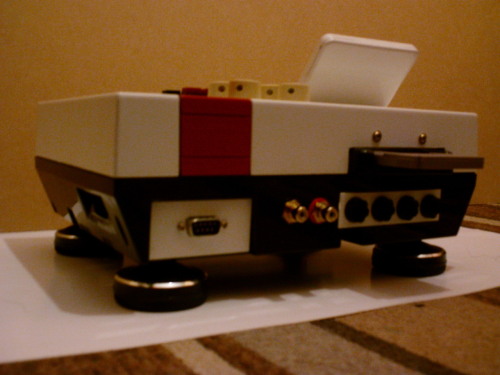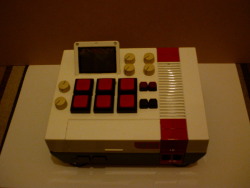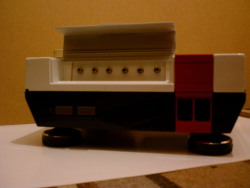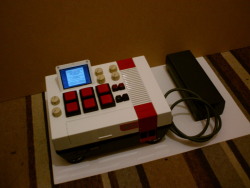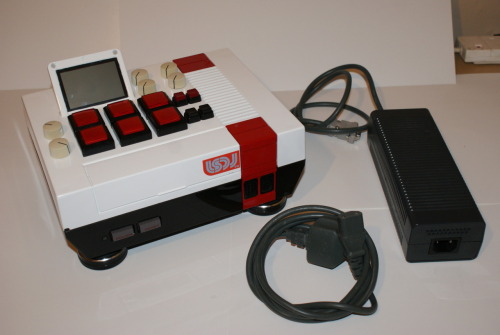
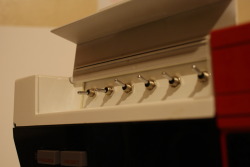



eBay listing: http://www.ebay.co.uk/itm/300659035747? … 1555.l2649
The NES MPS V 1.0 [Prototype] (NES - Music Production System)
By LoFI Future (LoFiFuture.Tumblr.com)
I have spent hundreds of hours soldering, testing, sanding, fabricating, designing and bassically losing my sanity with this project but it's all been worth it. And now its finished i want to sell it to a lucky bidder so i can get the funds to build another one so i can make a step by step tutorial for anyone who wishes to make one themselves. This auction includes the NES MPS module, Its power brick and an ABS flight case for transport. Unfortunatly i cant afford to include LSDJ or Nanoloop. To see the build process go to my blog (LoFiFuture.Tumblr.com
The 8Bit MPC:
This is the first of its kind. An 8 bit music production workstation to run Nanoloop or LSDJ. Its based off a GameBoy advance SP and built into an old NES case. There is also a 16BIT FX processor built in to apply FX to the Game boys output or an external device via the 1/4” jack inputs. The Processor also doubles as a 2 channel mono mixer, so you can mix an external device and the gameboys signal.
The switches under the “hood” are for the FX processor On/Off and the LEDs On/Off. Two of the switches are to select whether you want the gameboys signal to be processed by the FX processor and come out the 1/4” jack out puts, or to just go straight to the dedicated RCA outputs. I have left two of the switches unconected for the next owner to do what they wish with (maybe overclocking mods?)
The big square arcade butons control Up, Down, Left, Right, A and B. The 4 smaller swithes are for Start, Select, Left shoulder and right shoulder buttons. The 2 pots to the left are the FX slect switch (select reverbs, flanger, rotary speaker, chorus or delay) and the LED dimmer switch witch i may relocate and use the pot there as the gameboys volume out. The 4 pots in a cluster are channel 1 input, channel 2 input, channel 1 mix and channel 2 mix.
The power suply is 3 transformers housed in an old XBOX power brick and connect to the console with a 9 Pin D-Sub connector. The gameboys body that holds the circuitry can be easily removed by unplugging the 25 pin D-Sub (witch carries the controlles, power, audio) and removing the 2 screws at the back. This allows for easy maintenance, modification or if you simply need to change the battery.
The console only needs the power brick to power the LEDS, the FX processor and charge the gameboy. You can run it standalone off the Gameboys battery if you just want the gameboys audio clean.
As this is a prototype there are a few imperfections such as the little chips on the two front corners, and the black paint on the back had to be patched up. But overall it looks stunning really. All the paint was done in a proffessional spray booth and all the white metal panells were machined out by an experianced metal worker. The module sits on 4 turntable feet witch can be easily removed.
Anyway, good luck guys! i hope this goes to a good home. Demo videos will be avalible in a day or two. If you want anymore info just message me or email at [email protected]












